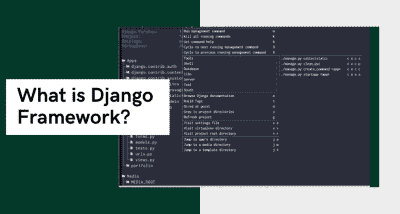Who Is A Programme Manager
- Amruta Bhaskar
- Jul 8, 2021
- 0 comentario (s)
- 3611 Puntos de vista

If a company is like a train, a programme manager is the soot-covered person at the front shoveling coal into the flames to keep it rolling. A train has many parts that are necessary for its operation, but the fireman is there to set it all in motion and monitor it so that the locomotive and all the cars behind keep moving toward their destination.
Programme managers oversee the complex operations of a business and make sure all of the interconnected parts work together.
Without a programme manager at the helm, an organization's workforce is left without leadership and vision, and you can't accomplish much in a situation like that — no matter how hard everyone works.
A programme manager acts as a coordinator between multiple projects at a business or organization to be sure their benefiting each other and aligning with overall business goals. They are different from project managers because they do not directly oversee individual projects.
A programme manager is an individual who is responsible for running a permanent, long-running operation that may involve multiple interconnected projects within a company or organization.
Programme management involves making sure all aspects of an operation are running smoothly, and it’s essentially a permanent position with no start or end date, contrary to projects (although project managers may also have permanent positions and frequently move one project to the other).
Programme manager responsibilities include laying out a strategy, setting objectives, overseeing projects, managing people, and analyzing the data.
Responsibilities of the programme manager
The programme manager is responsible for:
- planning and designing the programme and proactively monitoring its progress, resolving issues and initiating appropriate corrective action
- defining the programme's governance arrangements
- ensuring effective quality assurance and the overall integrity of the programme - focusing inwardly on the internal consistency of the programme, and outwardly on its coherence with infrastructure planning, interfaces with other programmes and corporate, technical and specialist standards
- managing the programme's budget on behalf of the SRO, monitoring expenditure and costs against delivered and realised benefits as the programme progresses
- facilitating the appointment of individuals to project teams
- ensuring the delivery of new products or services from projects are to the appropriate level of quality, on time and within budget, in accordance with the programme plan and programme governance arrangements
- ensuring there is allocation of common resources and skills within the programme's individual projects
- managing third party contributions to the programme
- managing communications with all stakeholders
- managing both the dependencies and the interfaces between projects
- managing risks to the programme's successful outcome
- working with the business change manager or equivalent on the transition to the new business as usual position
- initiating extra activities and other management interventions wherever gaps in the programme are identified or issues arise
- reporting the progress of the programme at regular intervals to the SRO or programme director if this role is also defined
On large and complex programmes it may be appropriate to appoint other individuals to support the programme manager for some of the particular responsibilities listed above, for example, a risk manager, a communications manager or a benefits manager.
The individual appointed as programme manager must have the necessary seniority to be able to take on the responsibilities associated with the role. The balance of skills required of a programme manager often changes as the programme develops. The person with the skills to identify or define the programme may not necessarily be the right person to drive through its implementation.
The programme manager should have:
- effective leadership, interpersonal and communication skills
- the ability to command respect and to create a sense of community amongst the members of the project teams
- good knowledge of techniques for planning, monitoring and controlling programmes
- sound business case development and approvals skills
- good understanding of the procurement process including negotiation with third parties
- good knowledge of programme and project management methods including MSP and PRINCE2(external link opens in a new window/tab)
- good knowledge of budgeting and resource allocation procedures
- sufficient seniority and credibility to advise project teams on their projects in relation to the programme
- the ability to find ways of solving or pre-empting problems














